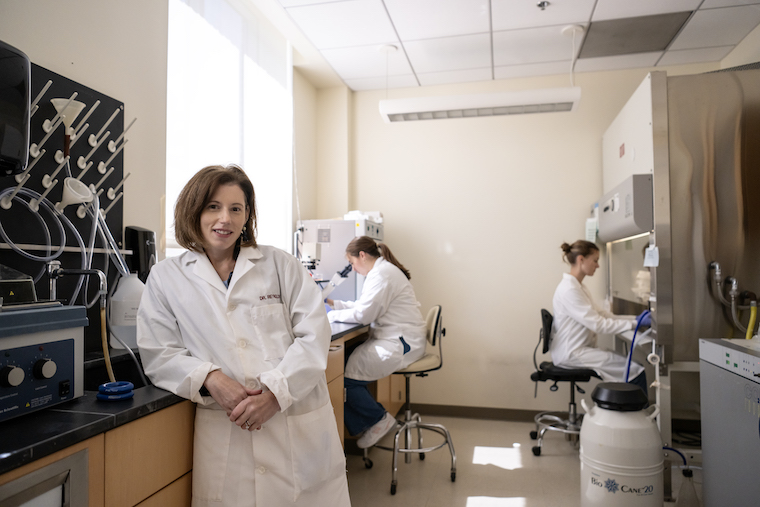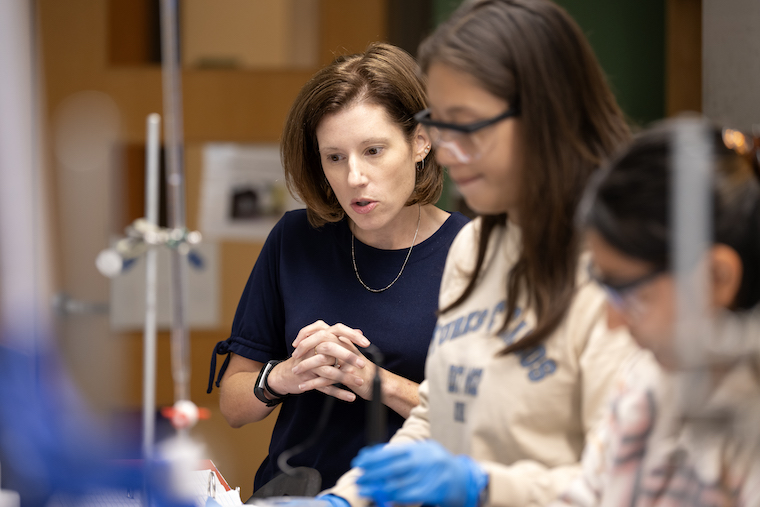Professor Mindy Reynolds Receives over $100k from National Science Foundation
The two grants will fund projects addressing toxicology research and create resources for educators.

Professor Mindy Reynolds of the biology and molecular biology department has been awarded two National Science Foundation (NSF) grants totaling $139,861 to support her undergraduate students' research on toxic substances and education resources for two-year colleges. The grants will fund projects that explore the effects of arsenic and phthalates, as well as develop resources for other educators to incorporate original research into their classrooms.
One of the grants, totaling $64,886, is a subaward from a larger grant going to the U.S. Coast Guard Academy and will support the development of course-based undergraduate research experience (CURE) kits. These kits will provide other professors and educators with the resources to incorporate original research into their own courses. Reynolds hopes that by making CUREs more accessible, more students will have the opportunity to engage in authentic scientific inquiry.
A second grant, totaling $74,975, will fund a mentoring project to support science instructors at two-year colleges. Reynolds will work with a group of experienced educators to share evidence-based instructional practices (EBIPs) that can improve student learning and engagement.
Provost Kiho Kim noted that the grants speak to Reynolds’ leadership in STEM education.
“With these grants, Mindy will showcase how excellence in teaching and scholarship can be interwoven to provide transformational experiences for our students,” said Kim. “Indeed, she is an exemplar of the teacher-scholar model to which all of us aspire.”

Reynolds, a toxicology expert, encourages her students to conduct original research on topics such as vaping, caffeine, and what’s in their haircare products. By studying these substances, students gain valuable hands-on experience and contribute to scientific understanding of their potential health risks.
"Every single thing in our world is poisonous, everything," Reynolds said. "It's the dose that makes something poisonous."
She emphasizes the importance of being aware of the substances we encounter daily and making informed choices.
Previous research overseen by Reynolds has already led to significant discoveries. Her students have found that certain vaping fluids can damage cellular structures, highlighting the importance of understanding the potential health risks associated with everyday products.
As Reynolds continues to mentor and inspire her students, she hopes that their research will contribute to a healthier and safer world. By empowering students to investigate important scientific questions, she is helping to shape the next generation of scientists and informed citizens.
To find out more about courses and opportunities for student research within this field, visit the webpage about the Biochemistry and Molecular Biology major.
- Dominique Ellis Falcon